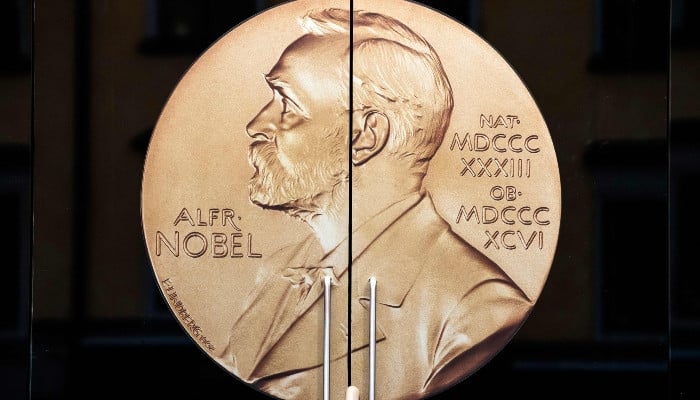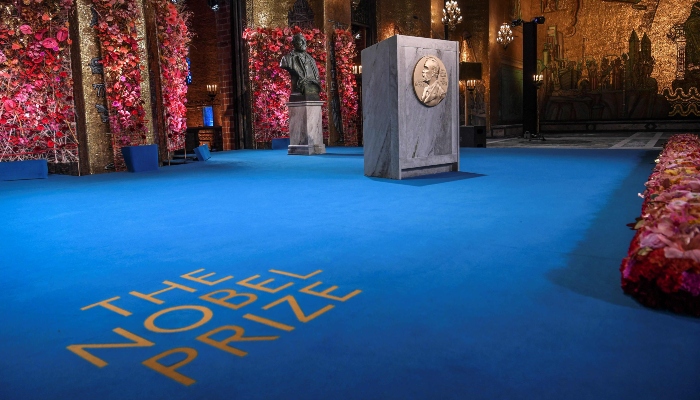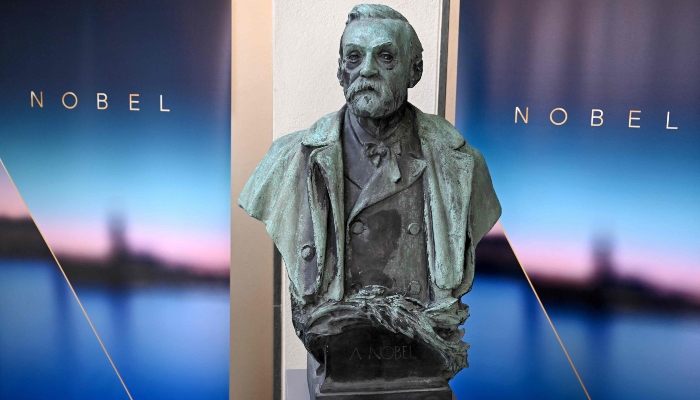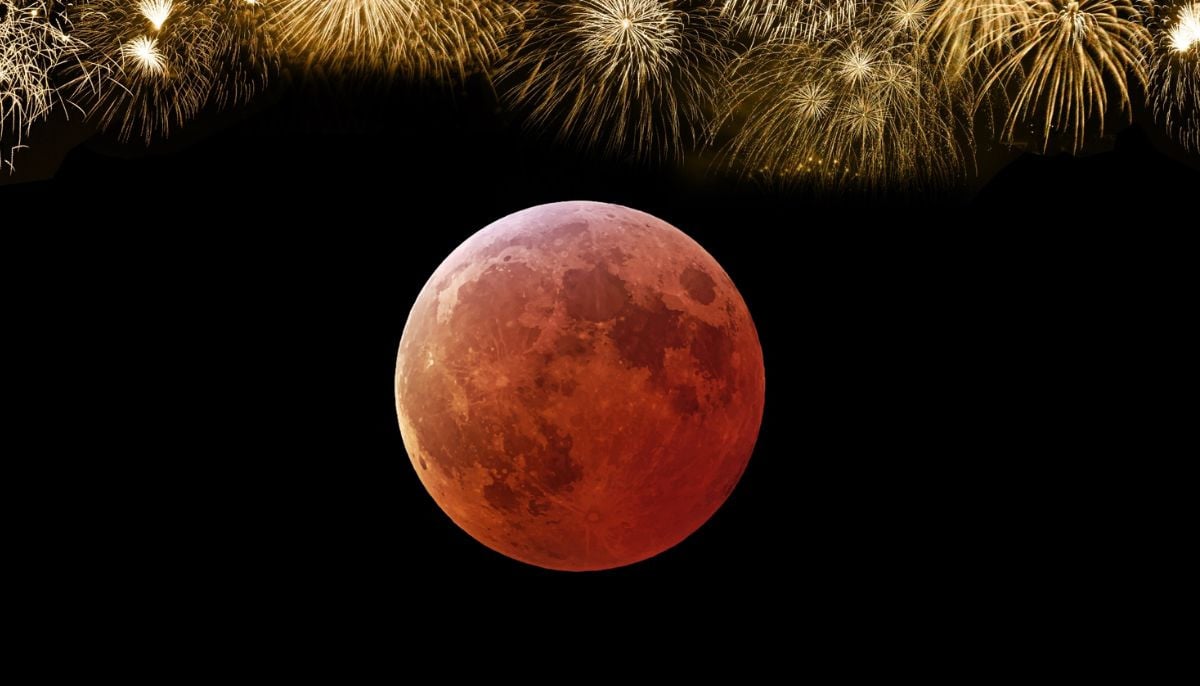Stockholm: A mathematical theory behind computer image compression, research into an ‘invisibility cloak’, and the science underlying the James Webb Space Telescope are among the discoveries expected to be in contention when the Nobel Prize in physics is announced on Tuesday.
The prize, to be unveiled at 11:45 am (0945 GMT) in Stockholm, is the second of this year’s Nob season, following Monday’s drug prize, which went to an American-Japanese trio for breakthrough in immunology.
Americans Mary Brunkow and Fred Ramsdell, along with Japan’s Shimon Sakaguchi, were honored for their discovery of the “guardians” of the immune system, a finding that has transformed the understanding of autoimmune diseases.
Several commentators have speculated that this year’s physics prize could honor something called Wavelet Theory.
David Pendlebury, who leads research analysis at research firm Clarisivate, said AFP The mathematical theory “may sound arcane” but stressed that it has had a “dramatic impact on everyday life” through things such as image compression for photos and videos on computers.
Belgian physicist Ingrid Daubechies, together with French mathematicians Stephane Mallat and Yves Meyer, are seen as potential winners.
Meanwhile, Lars Brosprom, science editor at Public Broadcaster Sveriges Radio, said AFP It may be time to borrow the Nobel to “get work done on something called metamaterials.”
In the field, Britain’s John B Pendry, who has become famous for his “invisibility cloak”, has often been seen as a candidate.
Quantum information
“We probably discussed it last year as well, and maybe the year before that,” Brostrom said.
“You usually talk about them, and then people stop talking about them, and then they get the prize,” he added.
Brostrom also mentioned “the people behind the James Webb Space Telescope” as a potential frontrunner, describing it as a “quintessential case” for a Nobel, where the theories date back decades and then are put into practice, in this case when the telescope was launched into space into space in late 2021.
Work on “quantum information” and algorithms is also getting buzzing.
“Much of the groundbreaking work in this field was done several decades ago and has come to fruition in functioning quantum computers and cryptography systems,” wrote Hamish Johnston, online editor of Science Magazine Physics World.
American mathematician Peter Shor, Canadian cryptographer Gilles Brassard, American physicist Charles H Bennett and Israeli-British scientist David Deutsch are likely to be among those honored, according to the magazine.
Teeny-scale microscope
Scientific advances in astrophysics are also among experts’ top picks.
Newspaper Dagens Nyheter Science journalist Maria Gunther speculated that work on how galaxies form could be honored, while noting the work of Mexican-British cosmologist Carlos Frenk, Argentine astrophysicist Julio Navarro and British scientist Simon White.
For the physics world, the theory of cosmic inflation, which seeks to explain the current nature of the universe through the lens of “exponential expansion of the universe in its very early history” may also be a contender.
The magazine said American theoretical physicist Alan Guth and Russian-American Andrei Linde were clear choices.
Camilla Widebeck, a science journalist with Sveriges radio, speculated that a microscope for the infinitesimal – the atomic force microscope – could also be awarded.
This instrument is capable of producing 3D images on an extremely small scale, sometimes at atomic resolution, and is significant in nanotechnology.
Swiss physicist Christoph Gerber is mentioned as a key figure in this field.
Last year, the Nobel Prize in Physics went to British-Canadian Geoffrey Hinton and American John Hopfield for their groundbreaking work on the basis of artificial intelligence – with both warning that their discoveries posed profound risks to society and humanity.
The physics prize will be followed by the chemistry prize on Wednesday.
The literature prize will be announced on Thursday and the highly watched Nobel Peace Prize on Friday.
The Economics Prize closes the 2024 Nobel season on October 14.
The winners will receive their prize – consisting of a diploma, a gold medal and a check for $1 million – from King Carl XVI Gustaf of Sweden at a formal ceremony in Stockholm on December 10.
That date is the anniversary of the 1896 death of scientist Alfred Nobel, who created the prizes in his will.








